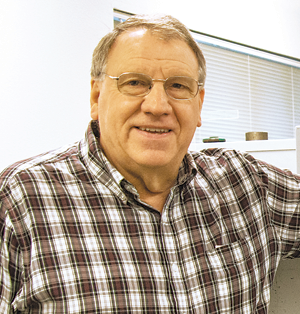Why is the Clark County Skills Center so successful? Over the last several years, the Skills Center has received several state and national awards for excellence in education. Is it the instructional staff? Yes it is! Is it a well-defined and structured technical curriculum? Absolutely! Is it students choosing to attend the Skills Center to embark on a journey to the career of their dreams? Without a doubt!
However, the real secret to the Skills Center’s success isn’t a secret at all; it’s the 259 community members who volunteer to serve on one of the center’s 18 advisory committees.
The Clark County Skills Center (also known as Cascadia Technical Academy) is a regional technical high school serving 1,050 high school juniors and seniors from 10 school districts in Southwest Washington. Students attend half the school day at the Skills Center and the other half of the day at their resident high school. By the end of their time at the Skills Center, students leave highly skilled and ready for entry-level employment or continuing education in high-demand/high-skill jobs. The input and advice from the employing community through industry advisory committees is essential to maintain the high level of excellence for which the center is known.
There are 16 technical programs at the Skills Center. Each one has an industry advisory committee consisting of employers, supervisors, employees and/or related experts. The committees meet between 4-10 times a year. The purpose of industry advisory committees is to bring professional and career relevance that is specific to the technical program by advising on curriculum, equipment and technology, facility needs, staff development and placement of program completers.
The Skills Center technical programs are Applied Medical Sciences; Automotive Technology; Aviation Technology; Construction Technology; Cosmetology; Criminal Justice; Culinary & Baking Arts; Dental; Diesel Technology; Fashion Merchandising & Management; Fire Science; Homeland Security; Information Technology; Legal/Medical Office Applications; Pre-Engineering & Design Technology; and Travel and Hotel Management.
In addition to the 16 industry advisory committees, there is also a General Advisory Committee and a Skills Center Foundation Board. The General Advisory Committee is a committee of 18 to 25 community members who advise the Skills Center director. They develop short- and long-range goals, assess labor market requirements, assist in evaluating the success of the technical programs, research and advise the establishment of new technical educational programs and advise in the establishment of operational policy.
2016-17 General Advisory Committee Chair Mike Bomar, executive director of Columbia River Economic Development Council, says, “The Skills Center General Advisory Council is a great example of industry, labor, community and education coming together to meet the needs of students and to prepare them for the careers of tomorrow. The passion and commitment of the people involved reflects how this community supports and understands the role that education plays in the quality of life each of us enjoys in this region.”
The Skills Center Foundation has a 14-member community advisory board that raises funds and provides financial support for Skills Center programs and students. Board members represent a diverse group of enthusiastic and talented individuals from Southwest Washington including business professionals, civic leaders, accountants, financial advisors, educators and entrepreneurs. Foundation Board Chair Sharif Burdzik, vice president for Riverview Community Bank, says, “The Skills Center truly serves the needs of the students by making sure they are trained to fill the current needs of the employers in our community. The advisory committees for each of the programs at the Skills Center, as well as the General Advisory Board, make sure communication is open between real-world employers and the instructors. Career and technical education is critical to have as a choice for students, as many of the unfilled employment opportunities require it, and some employers are finding it difficult to find a qualified workforce. I chair the board for the Skills Center Foundation, which is the 501c(3) nonprofit that supports the Skills Center with their scholarship and current equipment needs. It has been rewarding to be a part of ensuring that the students are working and training with technology and equipment that match what they will use as they begin their careers.”
Skills Center Director Mark Mansell says it best:
“Skills Center advisory committees are the primary strength of the Skills Center. Community input and advice enhances the excellence of our staff, our curriculum and our business partnerships. These community partnerships benefit our students with relevant skills and knowledge for a career and a productive and happy life. Now that’s success!”
Dennis Kampe is the development director of the Clark County Skills Center Foundation. He can be reached at 360.604.1050 Ext. 2178.


